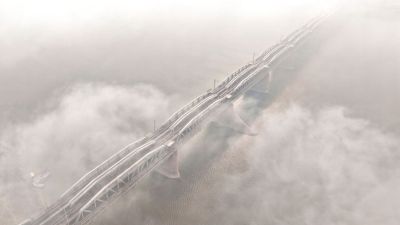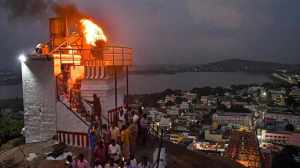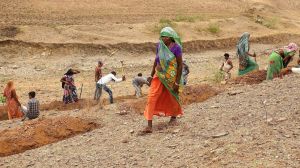On Pokhran-II 10th anniversary, Kalam backs N-deal
Making a strong case for Indo-US civil nuclear deal, Abdul Kalam said the country is dependent heavily on nuclear power.

Making a strong case for the Indo-US civil nuclear deal facing stiff opposition from the Left, former President A P J Abdul Kalam said the country is dependent heavily on nuclear power in the future for which it will need the uranium supplies that the pact will facilitate.
8220;We need the uranium supply and definitely the pact is important if we want to meet the target of nuclear energy8217;s contribution in the total energy production,8221; Kalam said.
He was speaking at a function in the Bhabha Atomic Research Centre in Mumbai to commemorate the tenth anniversary of the 8216;Shakti8217; series of the Pokhran nuclear tests.
Kalam, who had played a key role in Pokhran II, said, 8220;currently we have an installed capacity of only 3,900 MW which the Department of Atomic Energy plans to take to 7,160 MW by 2012 and to 24,000 MW by 2020. Our uranium reserves are limited. We will need a certain amount of uranium to attain the next stage in the fuel cycle producing energy on thorium which is available in abundance in India.8221;
Kalam also said India must reduce its dependence on fossil fuels for energy production by 2020 and endorsed adopting various non-conventional and renewable sources, besides nuclear energy, for generating electricity.
In his remarks, Chairman of the Atomic Energy Commission Anil Kakodkar said the country is no longer 8216;technology limited8217; but 8216;raw material limited8217; and exuded the confidence that India would overcome the limitation.
Kakodkar, however, declined to comment on the status of the Indo-US civil nuclear deal currently being debated by the UPA-Left Committee.
8220;We have discussed this deal with other countries and the IAEA. Now the rest of the decision is not technical.8221;
8220;We should adopt strategies that would bridge the gap of uranium supply as early as possible without compromising our autonomy to pursue our own development as planned both in strategic as well as the three stage programmes,8221; Kakodkar, who was part of the long-drawn negotiation on the deal, said.
Meanwhile, Principal Scientific Advisor to the Prime Minister, R Chidambaram said, 8220;I tell the Americans that we need to collaborate in the short term as it will be beneficial for them in the long term.8221;
- 01
- 02
- 03
- 04
- 05































